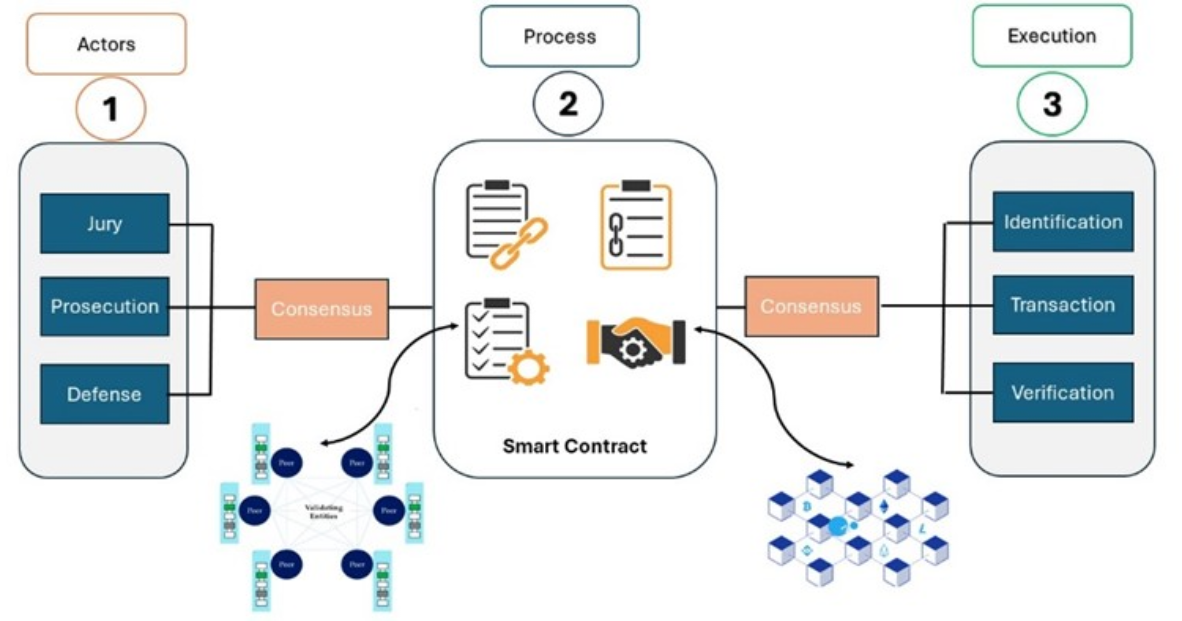Hookup Check: Your Ultimate Dating Resource
Explore insights, tips, and advice for modern relationships and hookups.
Fair Play in Code: Ensuring Smart Contract Fairness
Discover how to guarantee fairness in smart contracts and outsmart the competition in the blockchain world!
Understanding Fairness in Smart Contracts: Key Principles and Best Practices
Understanding fairness in smart contracts is essential for fostering trust and transparency in blockchain ecosystems. At its core, fairness ensures that all parties involved in a transaction are treated equitably and that the rules governing the contract are applied uniformly. Key principles of fairness include equity, transparency, and accountability. By adhering to these principles, developers can create smart contracts that not only perform their intended functions but also instill confidence among users. This can be achieved through rigorous testing, code audits, and clearly defined contract terms that prevent any party from manipulating the outcome.
To implement best practices for fairness in smart contracts, developers should consider the following strategies:
- Clear Definitions: Ensure that all terms within the contract are defined precisely to eliminate ambiguity.
- Consensus Mechanisms: Utilize effective consensus mechanisms to guarantee that contract execution is agreed upon by all stakeholders.
- Regular Auditing: Conduct regular code audits and security checks to identify and rectify vulnerabilities or biases.
- User Education: Educate users on their rights and responsibilities within the smart contract framework.

Counter-Strike is a popular competitive first-person shooter game that pits teams of terrorists against counter-terrorists. Players can choose different character classes, weapons, and strategies to outsmart their opponents. If you're looking to enhance your gaming experience, consider checking out the bc.game promo code for some exciting offers and bonuses.
Top 5 Common Pitfalls in Smart Contract Development and How to Avoid Them
Smart contract development is a complex yet rewarding field, but several common pitfalls can hinder success. One of the major issues is inadequate testing. Developers often underestimate the importance of thorough testing and end up deploying contracts with vulnerabilities. To avoid this, it's essential to employ various testing methods, including unit tests, integration tests, and formal verification. Regularly auditing code with both automated tools and manual reviews can also help identify issues before they cause significant problems.
Another common pitfall is overconfidence in code security. Many developers assume that if their code compiles and passes initial tests, it's secure. However, smart contracts are susceptible to a range of attacks, including reentrancy and overflow vulnerabilities. To prevent such issues, developers should follow best practices like using well-audited libraries and adhering to security patterns established in the community. Moreover, participating in bug bounty programs can provide an additional layer of security by allowing external experts to identify potential vulnerabilities.
Are Your Smart Contracts Truly Fair? A Guide to Evaluating Fairness
In the rapidly evolving world of blockchain technology, the question of whether smart contracts are truly fair is paramount for both developers and users. Fairness in smart contracts encompasses several aspects, including the transparency of the code, accessibility for all participants, and the equality of the terms set within the contract. To evaluate the fairness of a smart contract, start by examining the underlying code for any hidden conditions or biases. An open-source approach, where the code is publicly available for audit, is a significant indicator of fairness. Developers should prioritize auditing their code through independent third parties to ensure that it meets industry standards and is free from vulnerabilities.
Another crucial aspect to consider is the decentralization of the platform executing the smart contract. If a smart contract operates on a highly centralized network, it might not be as fair as one built on a truly decentralized blockchain. Furthermore, consider the governance model of the platform: does it allow for input from all stakeholders, or is it controlled by a select few? Addressing these questions helps users determine if they are engaging with a contract that genuinely promotes fairness. Regular reviews and community feedback can enhance the contract's robustness and trustworthiness, ultimately contributing to a healthier ecosystem.